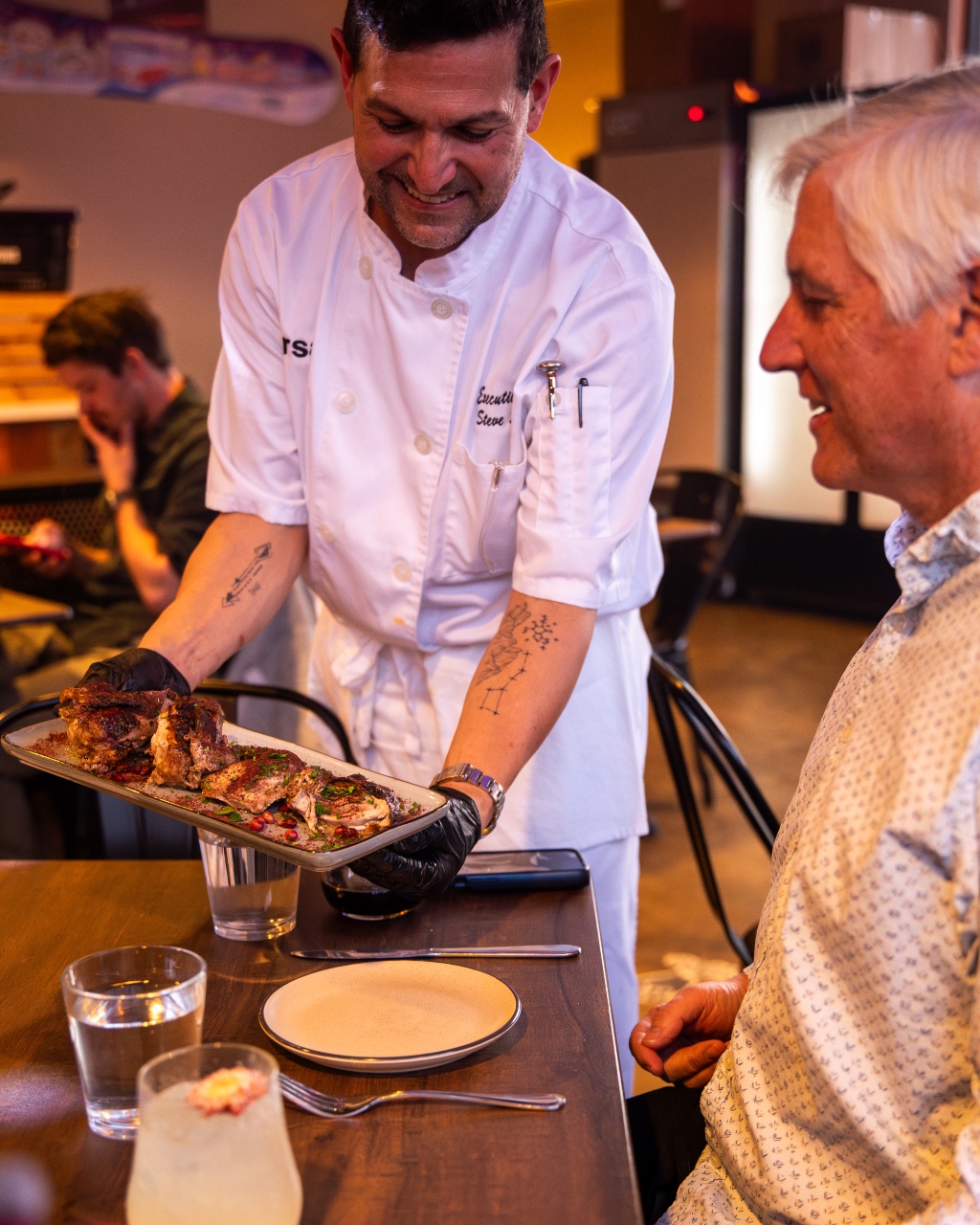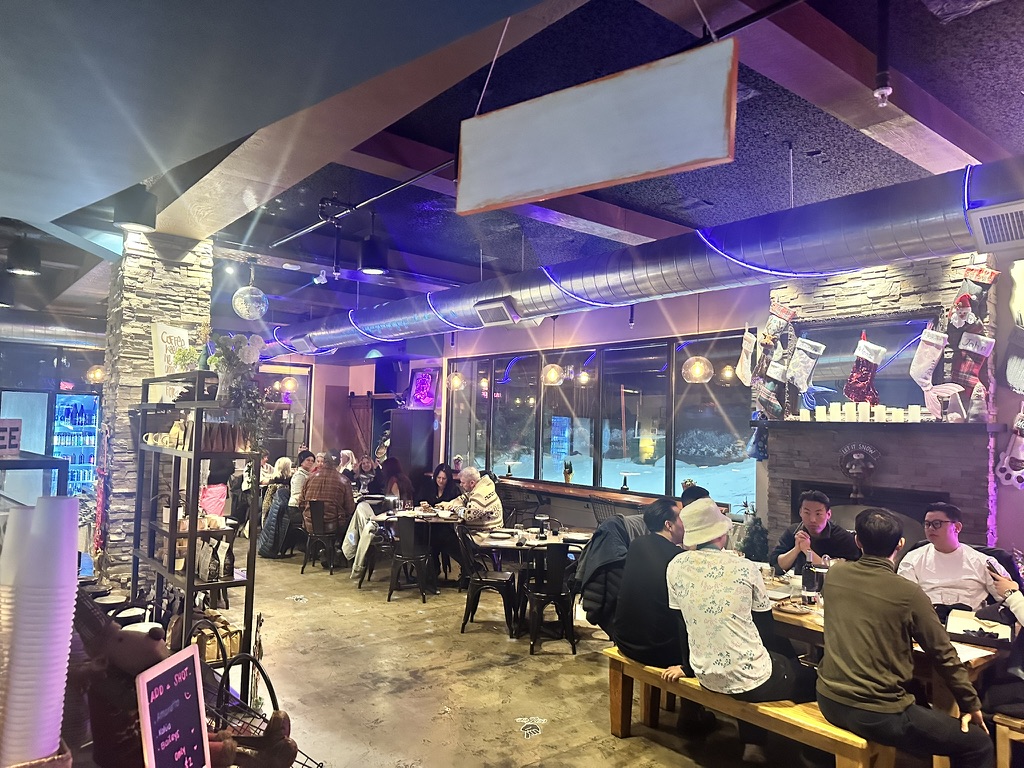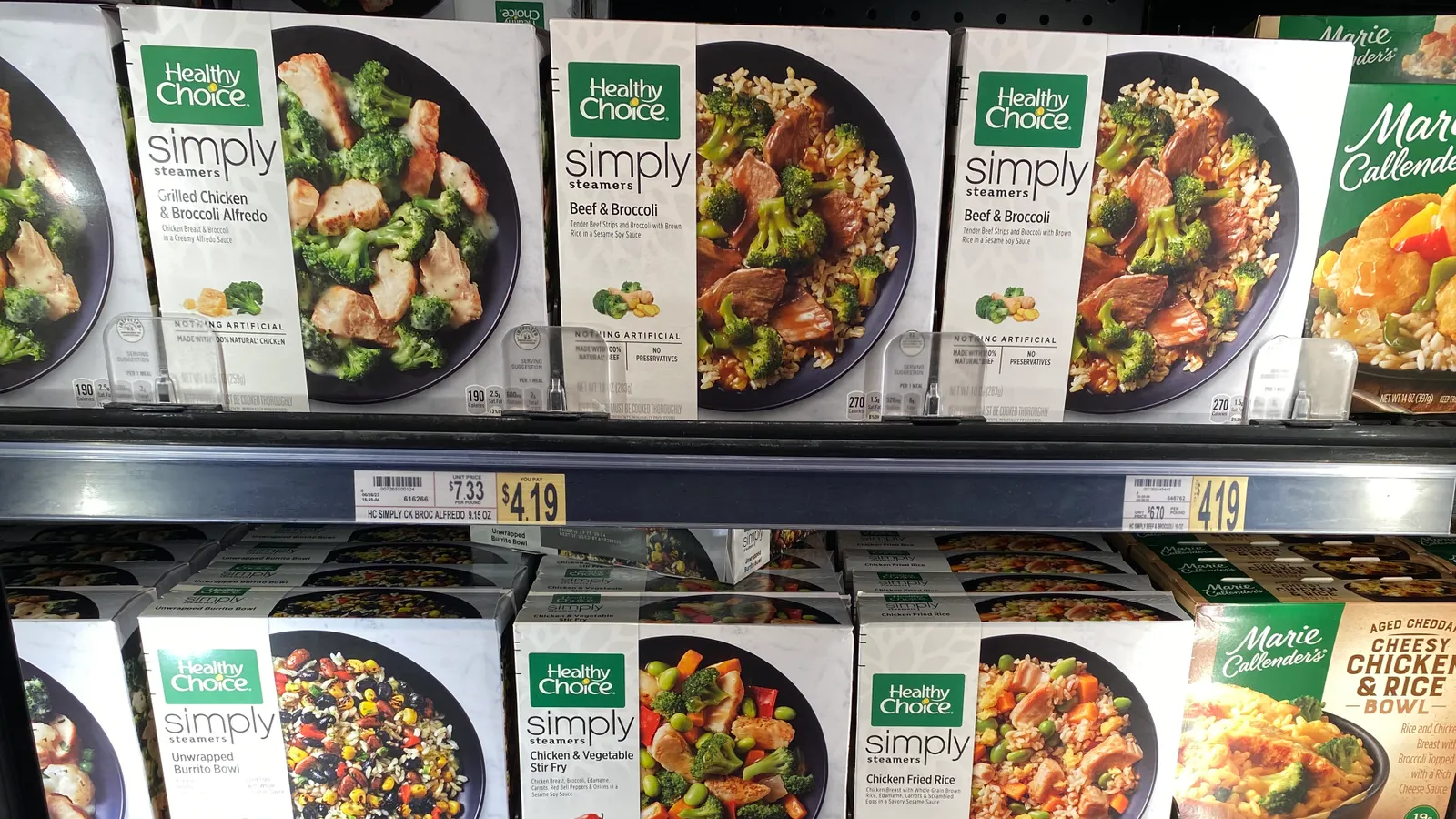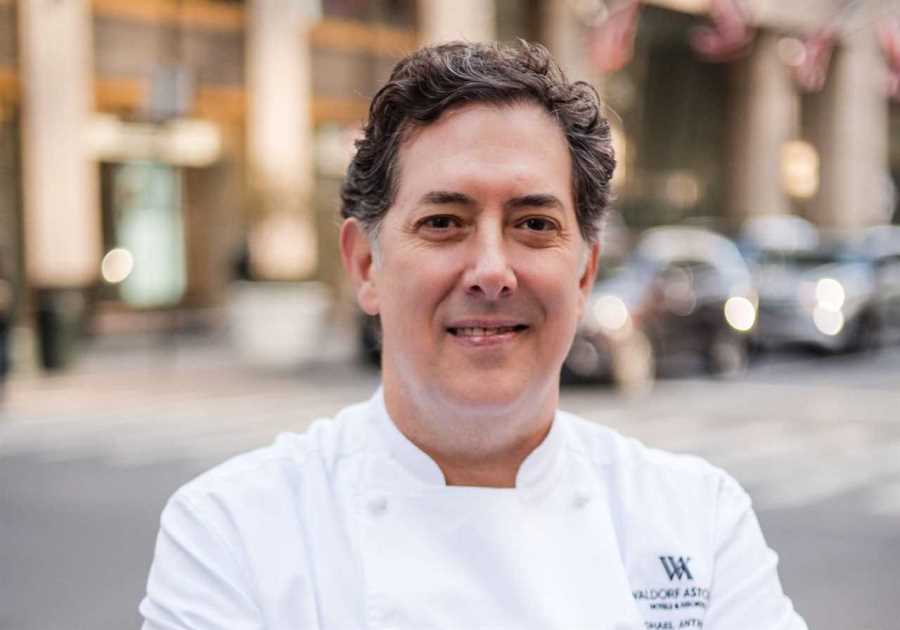When we first started roasting coffee, it was a simple way to support our son’s high school marching band. We didn’t imagine it would one day lead to owning a café, and certainly not to creating a fine dining restaurant within that same space. But looking back, the decision to launch Ursa was a natural evolution of our belief that creativity, operational excellence, and heartfelt hospitality could transform any space, no matter how humble.
Our backgrounds are not traditionally culinary. I (Steve) began my career as an environmental chemist, while both Tracie and I spent decades running large-scale manufacturing and design build companies. When we opened Mammoth Coffee Roasting Co. in the resort town of Mammoth Lakes, California, it combined a love for coffee, community, and entrepreneurial spirit.
From the beginning, we knew the café could be more. After the morning rush, the space sat virtually empty, and Tracie saw an opportunity to maximize its potential. Beyond simply generating additional revenue, we were motivated by the challenge of creating two completely different experiences within the same walls. We wanted to surprise guests, explore our passion for food, service, and creativity, and leave people thinking, “You’re making this kind of food out of a café?”
We wanted to surprise guests, explore our passion for food, service, and creativity, and leave people thinking, 'You’re making this kind of food out of a café?'
Preparing the café for evening dining presented real logistical hurdles. While most restaurants spend their mornings and afternoons prepping for service, we were still running a full café, serving coffee, house-made donuts, and making breakfast items. Our Ursa prep team, including myself (Steve), would come in after the café closed at 1 p.m. and work from 2 p.m. to 8 p.m., Tuesday through Thursday, getting everything ready for the weekend dinner service.
Transforming the space on busy weekends added even more pressure. After the café was closed and cleaned, we had just three hours to finish prepping and reset the entire dining room. Timing was everything. To make it viable, we designed a system that was both fast and flawless. Furniture had to be multipurpose, fitting the décor for both café and evening service. Lighting needed to shift the mood from casual to elegant and even the music changed. We created detailed transition checklists to guide staff through the reset process efficiently and consistently.
It wasn’t easy, but we made it work.

The kitchen posed another challenge. Our small footprint required a menu that balanced ambition with practicality. Every dish, from sous vide trout to handmade squid ink fettuccini to gochujang seared short ribs had to be crafted and prepped carefully to deliver fine dining quality without overburdening the limited space and equipment.
Training was essential. We cross-trained our team so that those who served coffee and donuts in the morning could confidently present fine wines and multi-course meals by night. Without requiring double shifts, we ensured that the same familiar faces delivered both casual warmth and refined service, maintaining a seamless culture of hospitality across both businesses.
For our staff, the opportunity to work across two distinct service styles fostered a strong sense of pride and ownership. It challenged them to develop new skills and offered a broader view of hospitality as a craft. Being part of something unconventional kept morale high and inspired creativity. There is nothing like this concept in our area, or in any place Tracie and I have dined. From the beginning, we knew we had created something truly unique and special.
We never could have imagined the response that followed. What began as a passion project quickly became something much bigger. Tracie and I were genuinely overwhelmed by the outpouring of support and excitement from visitors and our community. Although I am not a classically trained chef, with Tracie’s vision and exceptional palate, we crafted dishes that spoke to people. The five-star reviews began to pour in, and many of our longtime café regulars became evening diners as well. The experience of watching a familiar space transform nightly, paired with the quality of the food and service, built not just a loyal following, but a real sense of pride within our community.

The concept of "unreasonable hospitality" is central to Ursa’s identity. Inspired by Will Guidara’s book and philosophy at Eleven Madison Park, it’s about going beyond what’s expected in every interaction, anticipating needs before guests realize them, personalizing experiences in authentic ways and making people feel truly seen and cared for.
By blending business principles we learned over decades with a passion for hospitality, we were able to create a model that is both sustainable and deeply rewarding.
It’s not about extravagance or showmanship. It’s about small, genuine gestures like remembering a guest’s favorite wine, sending a surprise amuse-bouche, placing a handwritten birthday card at the table, or simply offering a warm, sincere welcome. I have always told both our café and evening teams that our goal is to create an interaction, not just a transaction. In a resort town known more for our outdoor adventure than fine dining, delivering that level of connection became our way of standing apart.
Building Ursa taught Tracie and I that operational discipline and heartfelt creativity can coexist, they’re partners. By blending business principles we learned over decades with a passion for hospitality, we were able to create a model that is both sustainable and deeply rewarding.
Fine dining doesn't require an iconic city location, a multimillion-dollar build-out, or even white table clothes. It requires vision, a dedication to details, a passionate team, and a genuine desire to take care of people. In our small mountain town, Ursa is proof that with the right mindset, even a humble café can become something extraordinary.






